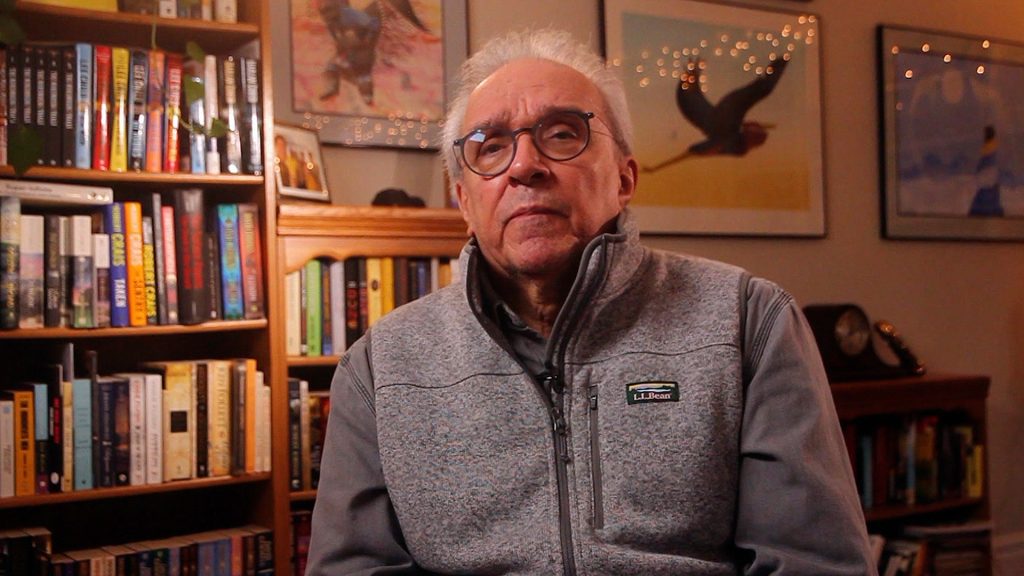
Retired judge Harry LaForme has concerns about the new Miscarriage of Justice Review Commission. Photo: APTN
A retired judge is questioning whether an independent commission to address wrongful convictions will resemble the model he and another judicial retiree recommended to Justice Minister David Lametti.
“…We wanted the name of whatever the government was proposing to be Miscarriage of Justice Commission,” said Harry LaForme, who is Anishinabe and a member of the Mississaugas of the New Credit First Nation in southern Ontario. “They couldn’t even do that. They had to put ‘review’ in it.
“It’s now called Miscarriage of Justice Review Commission. To me, that’s a slap in the face of the exonerees.”
LaForme voiced his concerns Wednesday during an online event to promote a new book about wrongful convictions by his friend and University of Toronto law professor Kent Roach.

LaForme called Roach’s book “a wake-up call to all Canadians” about how wrongful convictions keep the wheels of justice turning.
“It’s a very, very important subject,” said the former Court of Appeal judge in Ontario, who was tapped by Lametti in 2020 to co-host national consultations on the proposed commission with retired Quebec judge Juanita Westmoreland-Traoré.
“And it’s troubling – it really is troubling to the effect of how often we do this in Canada.”
In the book ‘Wrongfully Convicted: Guilty Pleas, Imagined Crimes, and What Canada Must Do to Safeguard Justice’, Roach counts plea agreements as wrongful convictions because innocent people are routinely enticed to plead guilty to crimes they didn’t commit in exchange for sentencing deals they can’t refuse.
In other words – “false guilty cases.”
82 cases
In fact, 15 of 82 cases in the Canadian Registry of Wrongful Convictions, which Roach co-created with Métis lawyer Amanda Carling and unveiled in February, represent people whose guilty plea-wrongful convictions were overturned.
Several of those people are Indigenous.
“The registry only mentions remedied wrongful convictions but my book goes beyond that and talks about (cases in detail)…,” said Roach, who has taught a course on wrongful convictions since 2000.
“Many times, it can take literally minutes for a wrongful conviction to occur – especially in a guilty plea case – and it can take decades to undo that wrong.”
A recent Justice Canada study supports what Roach is saying.
“Indigenous people were 33 per cent less likely to be acquitted and 14 per cent more likely to plead or be found guilty,” researchers found. “Then, once convicted, Indigenous offenders were 30 per cent more likely to be imprisoned.”
New commission
LaForme said the new commission will replace the justice minister’s Criminal Conviction Review Group, which, in the past 20 years, has flagged about 20 miscarriages of justice.
“That’s one a year,” noted LaForme. “We know that that is absurd. We know that they’re far greater than that.”
The bill to create the Miscarriage of Justice Review Commission Act – also called David and Joyce Milgaard’s Law – is before Parliament for first reading.
Already over-represented in the national prison population, Roach said disadvantaged and racialized Canadians are at greatest risk for false guilty pleas, particularly for crimes they are assumed to have committed or the prime suspects in “whodunits.”
Said Roach: “It applies to stereotypes that associate various disadvantaged groups with crime, but it also applies to circumstantial evidence.”
Build on the work
Lametti, said his spokeswoman, intends to build on the work of LaForme and Westmoreland-Traoré.
“The new, independent Criminal Case Review Commission will build on their recommendations, and will focus on creating a new miscarriage of justice process that is more efficient and more accessible to those who may need it,” said Diana Ebadi in a statement emailed to APTN News.
“The new Commission will include one-full time Chief Commissioner and between four to eight commissioners, who reflect Canada’s diversity,” she added.
“For the first time in federal legislation, the overrepresentation of Indigenous peoples, Black and racialized Canadians in the criminal justice system must be considered in the appointment of commissioners.
“Taking into account the overrepresentation of these groups in the justice system will be a critically important part of the Commission’s work.”









